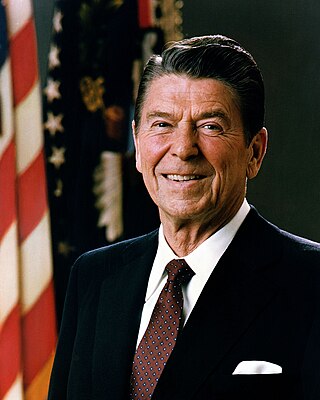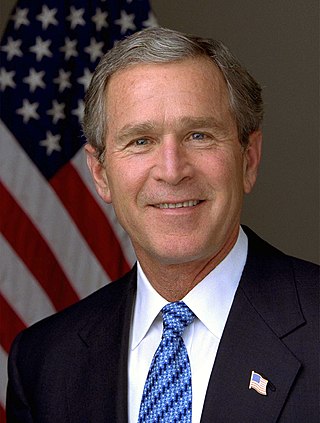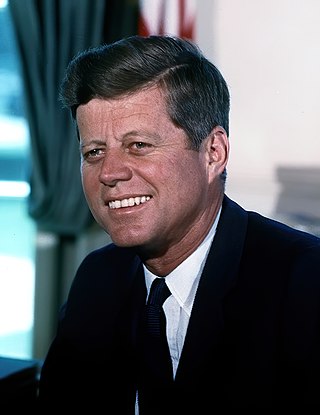This is a graphical lifespan timeline of presidents of South Korea. The presidents are listed in order of office.

This is a graphical lifespan timeline of presidents of South Korea. The presidents are listed in order of office.


William Jefferson Clinton is an American lawyer and politician who served as the 42nd president of the United States from 1993 to 2001. A member of the Democratic Party, he previously served as governor of Arkansas from 1979 to 1981 and again from 1983 to 1992. Clinton, whose policies reflected a centrist "Third Way" political philosophy, became known as a New Democrat.

Dwight David Eisenhower was an American military officer and statesman who served as the 34th president of the United States from 1953 to 1961. During World War II, he was Supreme Commander of the Allied Expeditionary Force in Europe and achieved the five-star rank as General of the Army. Eisenhower planned and supervised two of the most consequential military campaigns of World War II: Operation Torch in the North Africa campaign in 1942–1943 and the invasion of Normandy in 1944.

George Herbert Walker Bush was an American politician, diplomat, and businessman who served as the 41st president of the United States from 1989 to 1993. A member of the Republican Party, he also served as the 43rd vice president from 1981 to 1989 under Ronald Reagan and previously in various other federal positions.

James Earl Carter Jr. is an American politician and humanitarian who served as the 39th president of the United States from 1977 to 1981. A member of the Democratic Party, he served as member of the Georgia State Senate from 1963 to 1967 and was the 76th Governor of Georgia from 1971 to 1975. Carter is the longest-lived president in U.S. history and the first to live to 100 years of age.

The president of the United States (POTUS) is the head of state and head of government of the United States of America. The president directs the executive branch of the federal government and is the commander-in-chief of the United States Armed Forces.

Ronald Wilson Reagan was an American politician and actor who served as the 40th president of the United States from 1981 to 1989. A member of the Republican Party, he became an important figure in the American conservative movement, and his presidency is known as the Reagan era.

Richard Milhous Nixon was the 37th president of the United States, serving from 1969 until his resignation in 1974. A member of the Republican Party, he previously served as a representative and senator from California and as the 36th vice president from 1953 to 1961 under President Dwight D. Eisenhower. His presidency saw the reduction of U.S. involvement in the Vietnam War, détente with the Soviet Union and China, the Apollo 11 Moon landing, and the establishment of the Environmental Protection Agency and Occupational Safety and Health Administration. Nixon's second term ended early when he became the only U.S. president to resign from office, as a result of the Watergate scandal.

The vice president of the United States (VPOTUS) is the second-highest office in the executive branch of the U.S. federal government, after the president of the United States, and ranks first in the presidential line of succession. The vice president is also an officer in the legislative branch, as the president of the Senate. In this capacity, the vice president is empowered to preside over the United States Senate, but may not vote except to cast a tie-breaking vote. The vice president is indirectly elected at the same time as the president to a four-year term of office by the people of the United States through the Electoral College, but the electoral votes are cast separately for these two offices. Following the passage in 1967 of the Twenty-fifth Amendment to the US Constitution, a vacancy in the office of vice president may be filled by presidential nomination and confirmation by a majority vote in both houses of Congress.

Lyndon Baines Johnson, often referred to as LBJ, was an American politician who served as the 36th president of the United States from 1963 to 1969. He became president after the assassination of John F. Kennedy, under whom he had served as the 37th vice president from 1961 to 1963. A Democrat from Texas, Johnson also served as a U.S. representative and U.S. senator.

Avul Pakir Jainulabdeen Abdul KalamBR was an Indian aerospace scientist and statesman who served as the 11th president of India from 2002 to 2007. Born and raised in a Muslim family in Rameswaram, Tamil Nadu, he studied physics and aerospace engineering. He spent the next four decades as a scientist and science administrator, mainly at the Defence Research and Development Organisation (DRDO) and Indian Space Research Organisation (ISRO) and was intimately involved in India's civilian space programme and military missile development efforts. He thus came to be known as the Missile Man of India for his work on the development of ballistic missile and launch vehicle technology. He also played a pivotal organisational, technical, and political role in India's Pokhran-II nuclear tests in 1998, the first since the original nuclear test by India in 1974.

In the United States, the Electoral College is the group of presidential electors that is formed every four years during the presidential election for the sole purpose of voting for the president and vice president. The process is described in Article II of the U.S. Constitution. The number of electoral votes a state has equals its number of Senators (2) plus its number of Representatives in the House of Representatives, the latter being dependent on the Census's reported population. Each state appoints electors using legal procedures determined by its legislature, equal in number to its congressional delegation totaling 535 electors in the 50 states. The Twenty-third Amendment from 1961 granted the federal District of Columbia three electors, bringing the total number of electors to 538. Federal office holders, including senators and representatives, cannot be electors. Of the current 538 electors, a simple majority of 270 or more electoral votes is required to elect the president and vice president. If no candidate achieves a majority there, a contingent election is held by the House of Representatives to elect the president and by the Senate to elect the vice president.

The president of India is the head of state of the Republic of India. The president is the nominal head of the executive, the first citizen of the country, as well as the supreme commander of the Indian Armed Forces. Droupadi Murmu is the 15th and current president, having taken office from 25 July 2022.

The federal government of the United States is the common government of the United States, a federal republic located primarily in North America, composed of 50 states, five major self-governing territories, several island possessions, and the federal district of Washington, D.C., where most of the federal government is based.

Barack Hussein Obama II is an American politician who served as the 44th president of the United States from 2009 to 2017. As a member of the Democratic Party, he was the first African-American president in U.S. history. Obama previously served as a U.S. senator representing Illinois from 2005 to 2008 and as an Illinois state senator from 1997 to 2004.

Kamala Devi Harris is an American politician and attorney who has been the 49th and current vice president of the United States since 2021, serving under President Joe Biden. Harris is the Democratic Party's nominee for president in the 2024 election. As a woman of Afro-Jamaican and Tamil Indian descent, she is the first woman, first Black American, and first Asian American to hold each of the offices of the vice president, attorney general of California, and San Francisco district attorney. Additionally, from 2017 to 2021 she represented California in the United States Senate. She is the highest-ranking female official in U.S. history.

George Walker Bush is an American politician and businessman who served as the 43rd president of the United States from 2001 to 2009. A member of the Republican Party, he also served as the 46th governor of Texas from 1995 to 2000.

Harry S. Truman was the 33rd president of the United States, serving from 1945 to 1953. A member of the Democratic Party, he served as a United States senator from Missouri from 1935 to 1945 and briefly in 1945 as the 34th vice president under Franklin D. Roosevelt. Assuming the presidency after Roosevelt's death, Truman implemented the Marshall Plan in the wake of World War II to rebuild the economy of Western Europe and established both the Truman Doctrine and NATO to contain the expansion of Soviet communism. He proposed numerous liberal domestic reforms, but few were enacted by the conservative coalition that dominated Congress.

Gerald Rudolph Ford Jr. was an American politician who served as the 38th president of the United States from 1974 to 1977. He previously served as the leader of the Republican Party in the U.S. House of Representatives from 1965 to 1973, and as the 40th vice president under President Richard Nixon from 1973 to 1974. Ford succeeded to the presidency when Nixon resigned in 1974, but was defeated for election to a full term in 1976. Ford remains the only person to serve as president without winning an election for president or vice president.

John Fitzgerald Kennedy, often referred to as JFK, was an American politician who served as the 35th president of the United States from 1961 until his assassination in 1963. He was the youngest person elected president. Kennedy served at the height of the Cold War, and the majority of his foreign policy concerned relations with the Soviet Union and Cuba. A Democrat, Kennedy represented Massachusetts in both houses of the United States Congress prior to his presidency.